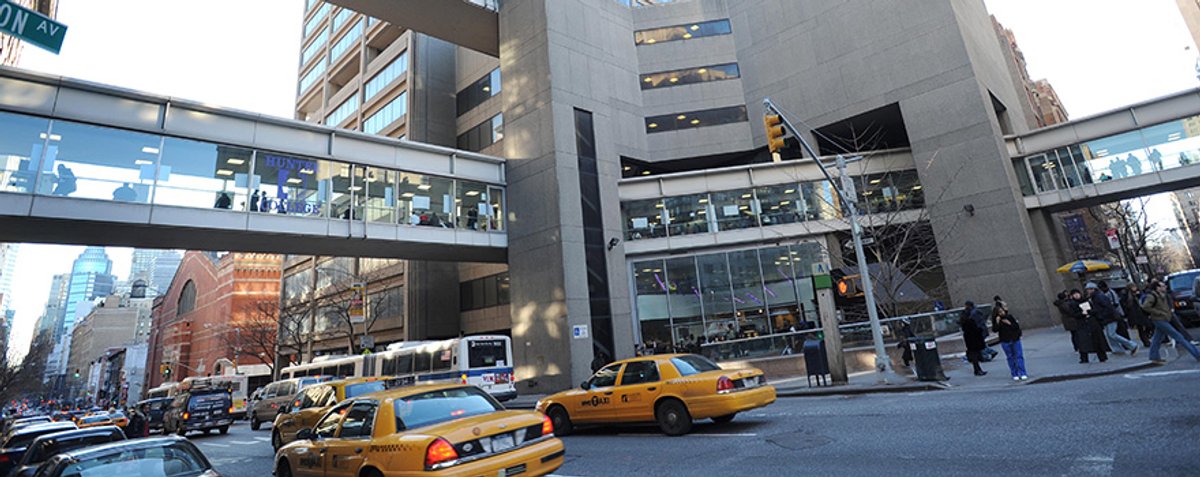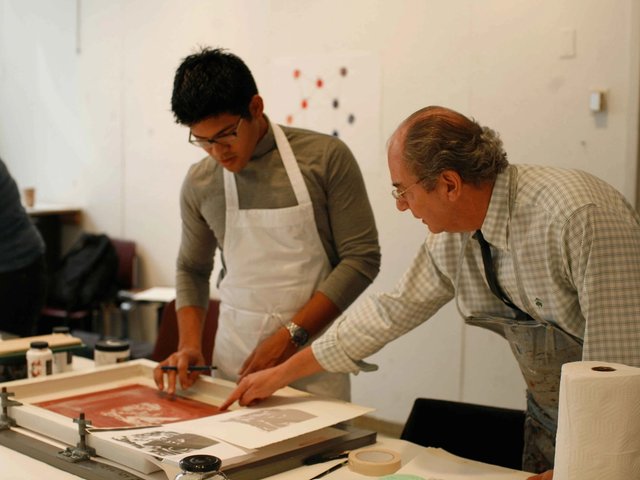In a round of surprise layoffs this week, nearly half of the college assistants at Hunter College’s department of art and art history lost their jobs and benefits. Those that remain still do not have contracts or assurances of compensation, several have told The Art Newspaper, and they are refusing to work until they receive new agreements for the autumn semester, potentially bringing the department to a screeching halt just as classes are starting.
Roughly 13 college assistants received letters from HR, some as recently on Monday, 31 August, saying they would not be reappointed to their positions. “Anyone laid off who was receiving their health insurance from Hunter will lose it shortly, if they have not already,” says Peter Hoffmeister, a College Assistant and Hunter alumni. “I am still employed, but without a contract, so like the remaining 17 college assistants, I cannot work. We are not being paid, and are unsure if our insurance will lapse.”
With an average enrollment of 125 students, Hunter’s art department is one of the largest in the US. The college assistants are usually given one-year contracts, with benefits, and they are responsible for maintaining and running the department’s facilities, equipment, and supplies, in addition to overseeing the use of studio spaces, tools, and training students.
Since July, the school has been issuing month-to-month contracts to assistants. One told The Art Newspaper that without news contracts for September, the workers would effectively be unpaid “volunteers” and that department faculty fully support their refusal to work until new agreements are delivered. In June, a petition was signed by over 1,000 faculty, staff, alumni, students, and community members associated with Hunter College’s department of art and art history, protesting the threat of job cuts.
MFA students at the university are able to work on site, since they have their own studios and can maintain social distancing. Without college assistants present, the incoming MFA students have not been able to be trained in the facilities and therefore cannot use them, Hoffmeister says.
BFA students meanwhile were to be sent art supply kits so that their work could be done remotely, but these have yet to be distributed. “The core art supplies in these kits were purchased using material fee funds that are collected by the school. These funds are built into tuition, and are non-refundable,” says Elizabeth Lewin, who received her MFA from Hunter in 2016 and is now a college assistant managing the art department floor. “I spearheaded the coordinations, logistics, and delivery of this endeavor, which was set to begin on 3 September. However, the first round of distribution, which was meant to provide over 200 undergraduate students with materials for their classes, was cancelled on Tuesday because college assistants have not been given contracts for the month of September.”
Nora Maité Nieves, a college assistant who managed the Hunter East Harlem Gallery—one of four spaces affiliated with the university—was among those laid off on Monday. “Each Hunter College Art Gallery runs with two employees, a full-time director and a part-time college assistant gallery manager,” Nieves explains. All the managers were let go, she adds, “leaving the responsibility of running a full exhibition programme—including publications and travelling exhibitions, and graduate coursework in the Curatorial Certificate Program—in the hands of one person.”
Just the week before, Nieves had helped present the programming for the 2020-21 season in a gallery staff meeting. “We are in the process of developing a project with The Black School to take over the gallery windows and create virtual conversation events. Our Virtual Studio Visit programme, which serves the uptown, social practice artists and current Hunter College MFA students, connecting them with renowned curators all over the US during quarantine, was scheduled to restart this Fall. This is just part of our planned programming for this year that has been jeopardised by our own institution,” Nieves says, because of the loss of the gallery managers. “How can you run a kitchen without a cook?”
Requests for comment made to the chancellor’s office and university administration were not answered at the time this story was posted.




